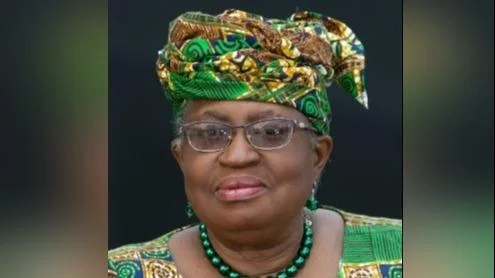The challenges and opportunities for developing economies, particularly African countries, in exploiting their digital trade potential were discussed at a high-level panel. Speakers emphasized the need for improved digital connectivity, a supportive regulatory environment, and trade capacity building.
In her opening remarks, WTO Director-General Ngozi Okonjo-Iweala stated: “The digital economy presents immense opportunities for growth, innovation, development and inclusivity. Trade in digitally delivered services is the fastest growing segment of global trade, growing at an average of 8% per year since 2005 and quadrupling in value to reach $4.25 trillion last year. This growth is faster than growth for trade in goods and even for other services. It's particularly promising in Africa, and it's promising in other developing parts of the world.”
Ambassador Hung Seng Tan of Singapore provided insights into what developing economies can do to achieve greater integration into the digital economy. He highlighted the importance of embracing digital trade as it becomes an engine of economic growth. He also encouraged participation in formulating digital trade rules within the WTO and developing essential digital infrastructure.
David Yardley from the Australian Department of Foreign Affairs and Trade updated attendees on e-commerce negotiations at the WTO under the joint statement initiative. He noted that digital trade rules can optimize benefits by promoting consumer interests and supporting inclusion to bridge the digital divide. Rulemaking should be viewed through an Aid for Trade lens to ensure consistent rules translate into realized potential.
Ambassador Usha Dwarka-Canabady of Mauritius stressed reducing internet access costs and ensuring robust digital infrastructure to bridge Africa's digital divide. She underscored implementing effective regulatory frameworks and enhancing small and medium-sized enterprises' (SMEs) digital capabilities to harness digital trade's full potential.
Victoria Kwakwa, Vice President for Eastern and Southern Africa at the World Bank, outlined ongoing efforts under a program extending up to 2030 aimed at preparing countries for fuller participation in the digital economy. The program addresses issues such as the digital divide and inadequate infrastructure among others.
Ms Kwakwa mentioned that joint work between the WTO and World Bank on Digital Trade in Africa aims to bring greater analysis to policy questions related to this sector. Work has been completed so far for Benin, Côte d'Ivoire, Ghana, Nigeria, and Rwanda.
She said: “What we realize is that we need globally to work more in partnerships. The challenges are huge, and working in partnerships gives us an opportunity to make the whole bigger than the sum of its parts. And this is what we're doing with the WTO.”
Deputy Director-General Johanna Hill emphasized how critical digital transformation is across various sectors such as agriculture, services, and manufacturing. She pointed out specific examples of export growth driven by digitization in countries like Pakistan and Bangladesh as well as India's success in computer services trade alongside business process outsourcing from India and Philippines.
DDG Hill also stressed partnerships with institutions like the World Bank are crucial for improving both connectivity levels as well as regulatory environments globally.

